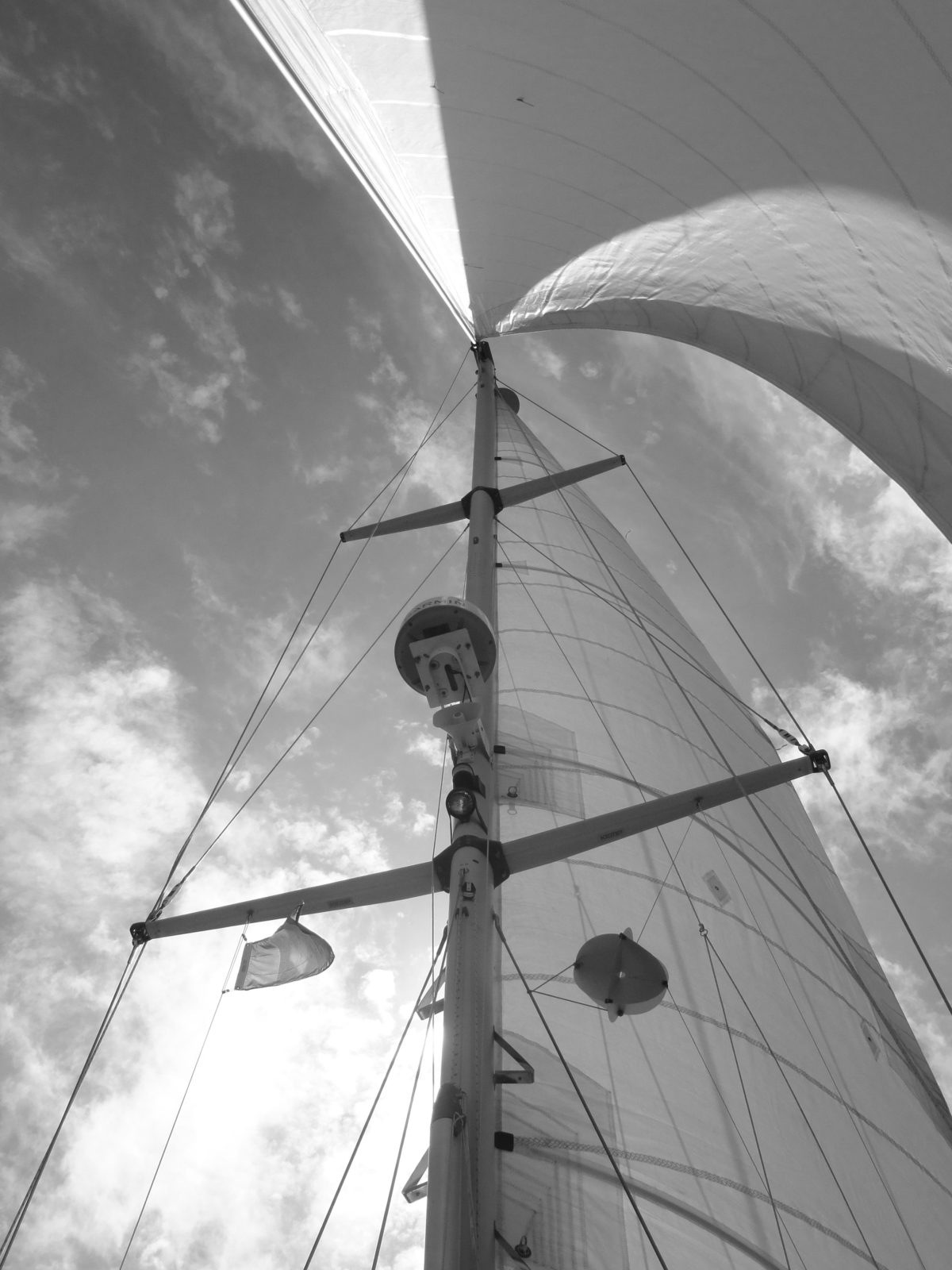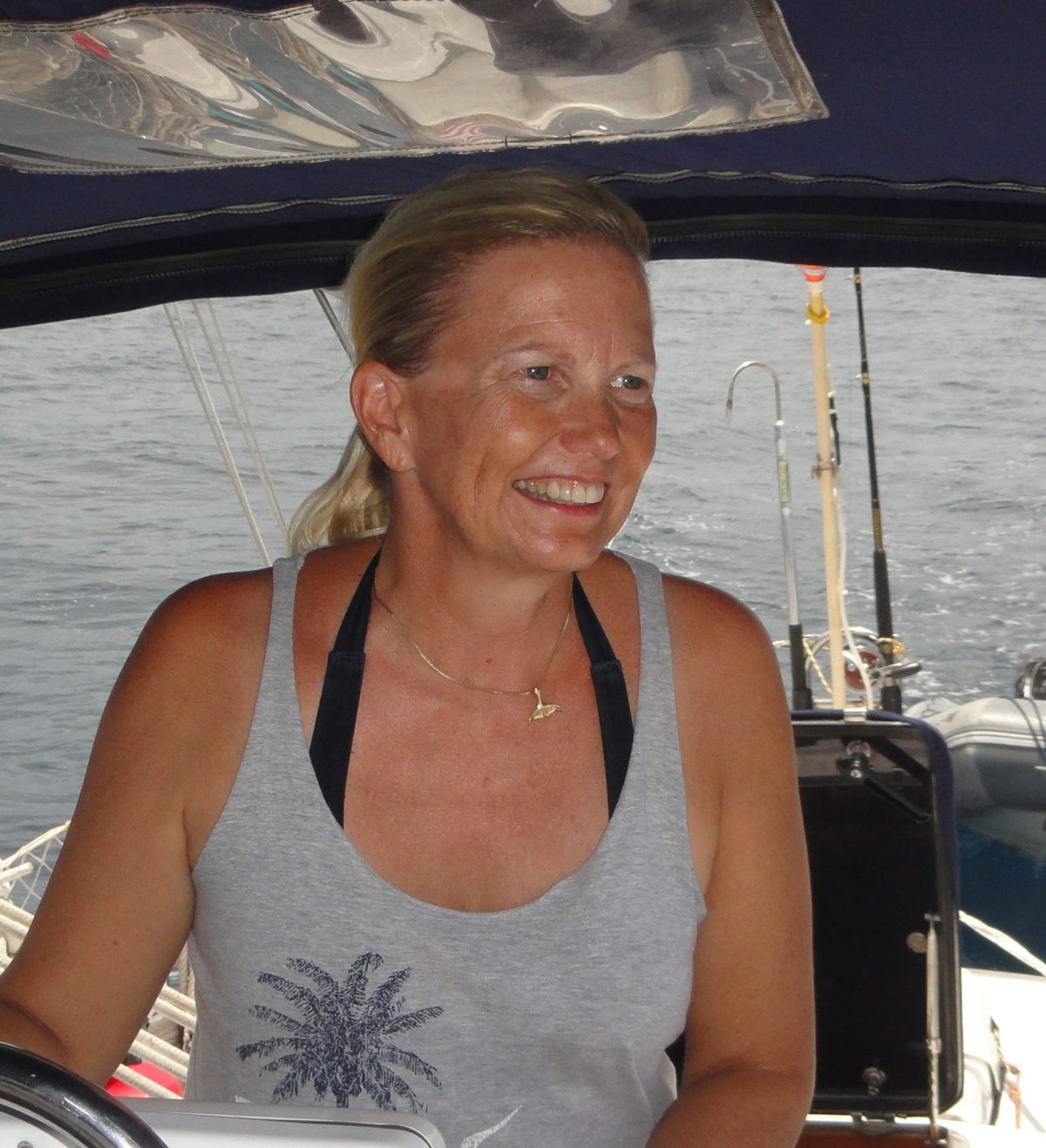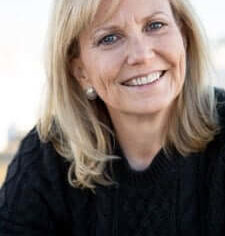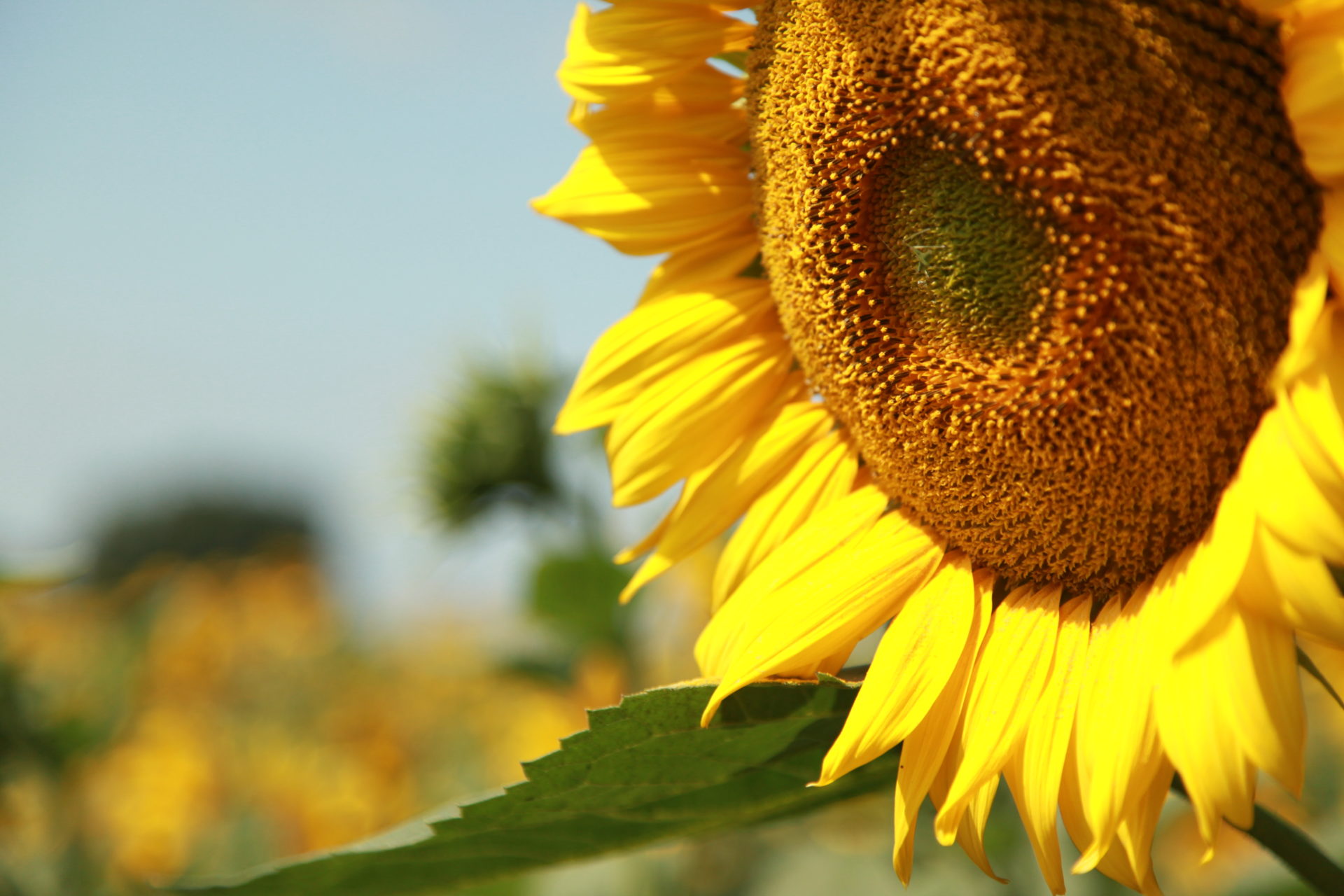By Heather Lyn Mann in June 2013

Ship’s Log: October 15, 2008, 14:10—Atlantic Ocean just outside Port Everglades, Florida
“That’s it! When in doubt, let it out,” coaches Peter, the nautical salesman who helped us secure two crisp, new sails for our vessel. Husband Dave and I spent the past year, when air currents split the fabric of our fourteen-year-old sail at its weakest points,
By Heather Lyn Mann in June 2013

Ship’s Log: October 15, 2008, 14:10—Atlantic Ocean just outside Port Everglades, Florida
“That’s it! When in doubt, let it out,” coaches Peter, the nautical salesman who helped us secure two crisp, new sails for our vessel. Husband Dave and I spent the past year, when air currents split the fabric of our fourteen-year-old sail at its weakest points, patching holes and taping tears. But now our ship is adorned with fresh, high-quality sails, and Peter is here on this overcast afternoon to share the secrets of proper sail trim.
“Let the line out until the forward edge of the mainsail flutters,” Peter encourages, “and then pull the line back in until the fluttering stops. That is perfect trim.” Dave executes his instruction.
“But we’re not going all that fast,” I complain after a moment.
“Look at that sail,” urges Peter. “Look at it. It’s perfect. It’s happy. This is what a happy sail looks like. This is all you’re going to get from the boat in today’s conditions. This is what a great sail on a great boat on a great day looks like.” My eyes climb the vertical expanse, squinting into sunlight as my mouth opens. I struggle desperately to see what he sees, to memorize the shape that is ideal. The glossy sail glints brightly in the subdued daylight. Otherwise, nothing looks unique about the sail’s appearance; it’s nothing special. Suddenly, I catch on.
I have touched nirvana today—and many days in the past— and I have not known it. I didn’t feel satisfied unless the boat was moving fast. Out of the blue, I feel a long-held obsession with going fast as a tangible, menacing gremlin. For decades, the urge for speed robbed me of a quieter pleasure: the acceptance of peaceful present moments at a slower pace. Throughout my sailing career I equated moving slowly with doing something wrong. I have never accepted the beauty of this lazy state, the languor of the prolonged, the gift of the easy, because I have been hungry for excitement, desperate for perfection.
“Look,” Peter chides. “You can work this thing to death if you want—jacking the mainsail up and down by inches to add or sub-tract shape, moving it in and out with every wisp of air—but you’re cruisers, not racers. You might get another quarter- to half-knot of speed on the boat, but it is impossible to do that all day, every day. What’s your hurry? There is no contest. You’ll get there.”
It occurs to me at this moment that slowing down to a point of ease is not a luxury. Going slow is part of the natural order of things. The planet does not rush; moments when nature moves at great speed are a long time in the making. When I slow down to the Earth’s tempo, I am nourished by layers of wilderness operating simultaneously, the nesting of ecosystems. My body is host to bacterial life forms; my boat—filled with tools, water, and food from land—is host to my body; the ocean, sky, and surrounding life forms are host to my boat; planet Earth as it spins around the sun is host to the ocean; our galaxy in the expanse of space is host to the Earth.
By slowing down, which is a necessary pre-condition to mindfulness, it is possible to observe complex relationships among living organisms and the physical environment. Ecology is the branch of science studying these relationships. By being mindful of the ecology of things interacting around me and through me and moving in concert with these natural forces, I can experience deep inner knowing—divine wisdom—and join the great Earth in thinking and acting as an ecosystem. This is a vital skill if I am to make real my aspiration to cultivate healing actions for individuals, society, and Mother Earth. It is the perfection of my sails on this day that brings to life the Buddha’s lesson of slowing my thoughts and actions to the pace of Earth herself; in this way, I connect—like a fellow musician—to Earth’s symphony.

After a bit, we deliver Peter back to shore. He is in a rush to meet his son. “Thank you,” I blurt. “The time you spent with us today has made a real difference in how we will do things from now on.” Words catch hard in my throat and I grow speechless. He has ushered in for me an acceptance of ease with the natural order of the world. He has shown me, through my sails, how to witness the tempo of the planet so I can move in harmony with the reality that surrounds. I am grateful for his insight, but his mind is unconscious of the profoundness of his own message. I can find no words in this moment to properly speak to the magnitude of his gift.


